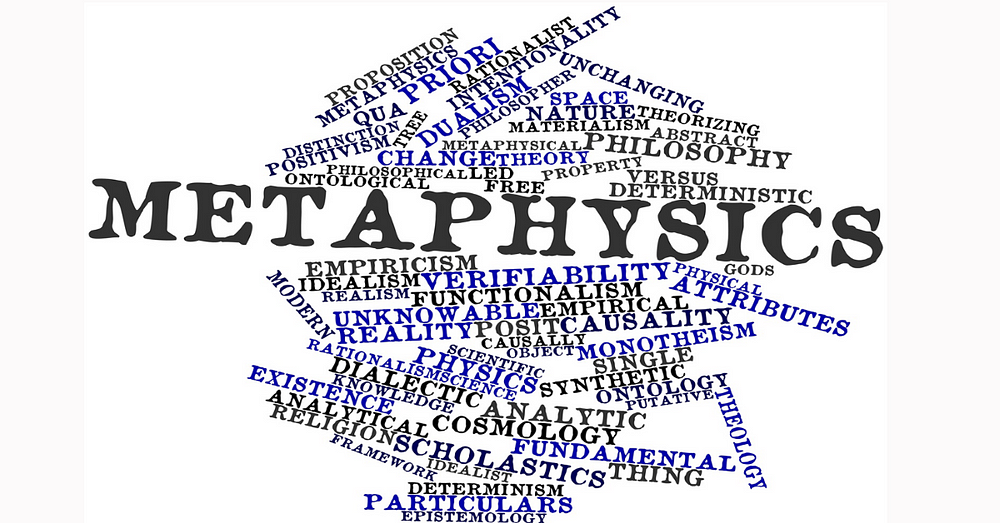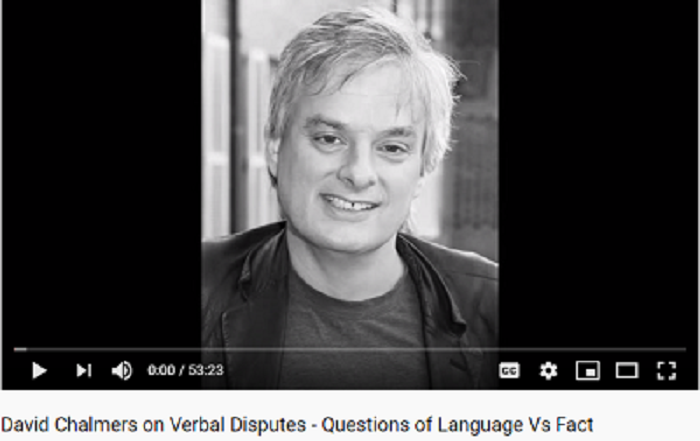Philosopher David Manley claims that “most contemporary metaphysicians are concerned with the reality that is represented” and not with “language and thoughts”. Other (analytic) philosophers argue that much (analytic) metaphysics is “shallow” and “merely verbal”. More technically, they argue that such metaphysicians make claims which simply aren’t “truth-evaluable”.

Professor David Manley (at the University of Michigan) believes that
“[m]ost contemporary metaphysicians think of themselves as concerned, not primarily with the representations of language and thoughts, but with the reality that is represented”.
David Manley goes on to write that this
“approach in mainstream metaphysics [has] only come to ascendancy lately, and is still widely challenged”.

Manley also tells us that metaphysics “is concerned with the foundations of reality”. He continues:
“It asks questions about the nature of the world, such as: Aside from concrete objects, are there also abstract objects like numbers and properties? Does every event have a cause? What is the nature of possibility and necessity? When do several things make up a single bigger thing? Do the past and future exist? And so on.”
So what if a philosopher were to say, to take just one possible retort, the following? -
The idea of there being “foundations of reality” is preposterous.
It can even be said that talk of “the nature of the world” (rather than, say, the plural natures) raises a few questions too. In addition, why accept any distinction at all between abstract and concrete objects? Or, alternatively, perhaps there are other kinds of objects other than those which are abstract and concrete. Perhaps some metaphysicians even question that there are events in the way that others question the existence of objects. And so on.
Possibly all these questions can legitimately be asked, and it still be acceptable to talk about “the foundations of reality”, “the nature of the world”, etc. After all, the discussion must start somewhere. And even if a metaphysician rejects everything contained in Manley’s short descriptive account of metaphysics, then these basic distinctions may still be accepted by many — or even most — metaphysicians.
In a very basic sense, then, what Manley describes seems to be classic metaphysical realism — however you slice it. Thus, some philosophers may be surprised that this is still the current paradigm (or fashion) for contemporary metaphysicians. Then again, (metaphysical) anti-realism (to take just an alternative) has also only ever been one (other) option in metaphysics.
It can be added here that even though these realist (or non-deflationary— see later) metaphysicians are concerned with “the reality that is represented”, they may still be interested in what contemporary science has to say on reality (or the world). After all, if, as W.V.O Quine argued, it is physics which tells us “what there is”, then surely a metaphysical realist needs to listen. That said, metaphysicians who’ve been strongly committed to the findings of science have also taken various anti-realist positions and positions which are critical of metaphysical realism.
Manley himself stresses the importance of science (actually, physics) to metaphysical realists too when he writes:
“And the preferred methodology for answering these questions is quasi-scientific, of the type recommended by W. V. O. Quine, developed by David Lewis [].”
Strong Deflationism
Many people who are suspicious of what’s now called “analytic metaphysics” will be sympathetic to the position of what Manley calls “strong deflationism”. (That’s if people who dislike metaphysics will even care about a position which criticises it.) So it’s worth stating a few words on analytic metaphysics here.
Analytic metaphysics (see here, here, here, and here) isn’t metaphysics done by analytic philosophers, as the name may suggest. Analytic metaphysics is deemed to be a particular kind of metaphysics within analytic philosophy. In other words, not all metaphysicians who are analytic philosophers also do analytic metaphysics. (Of course some philosophers will reject this distinction and they’d probably even question whether there is such a thing — at least as just described — as analytic metaphysics.)
If we return to strong deflationism. (This term is also used by the American philosopher Theodore (Ted) Sider in his paper/chapter, ‘Ontological Realism’.)
The position of strong deflationism is still a metaphysical position. Indeed whatever position you take on the world (or on anything else for that matter) will contain some assumptions (or even explicit beliefs) which are metaphysical in nature.
So what is strong deflationism? According to Manley, it’s
“[m]otivated in part by intuitions of shallowness, they argue that the dispute is merely verbal, or that the disputants are not making truth-evaluable claims at all”.
Is all (analytic) metaphysics “merely verbal”?
Perhaps not.
One is tempted here to make the (possibly inconsequential and therefore trite) point that there must still be the way the world is.
So:
1) Sure. We talk about the world with words, concepts and theories. We also rely on our embodied/embedded nature and our contingent sensory systems. Etc. However, there is still the way the world is.
2) We may not even be able to (as it were) get at the world unless we use words, concepts or theories, sensory systems, etc. which “distort” or simply change it. However, there is still the way the world is.
Furthermore, what does analytic metaphysics displaying “shallowness” mean here? What are (realist) metaphysicians shallow about? What can they say — metaphysically or otherwise — which isn’t shallow?
Can it really be the case that a dispute — any dispute — can be “merely verbal”? Is that possible — even in principle? (See the final section on David Chalmers’ position later.)
What’s more, if the (analytic) metaphysicians’ claims aren’t (to use Manley’s term) “truth-evaluable”, then what sort of metaphysical (or simply philosophical) claims are truth-evaluable? And what would make them truth-evaluable?
These questions will require answers which must, at least in part, include answers with metaphysical components. (The critics of metaphysical realism may not, and probably will not, deny that they’re committed to at least some form of metaphysics.)
Despite my own questions and points, Manley goes on to say that
“[i]n its new forms, strong deflationism poses as serious a challenge to metaphysics as ever”.
Mild Deflationism
The “mild deflationist” position (as expressed by Manley) is difficult to grasp. Manley tells us that mild deflationists “admit that there is a genuine dispute at issue”. However, they also believe that “it can be resolved in a relatively trivial fashion by reflecting on conceptual or semantic facts”. Moreover, “nothing of substance is left for the metaphysician to investigate”.
So how does all that work?
If these mild deflationists admit that there are “genuine disputes” here; then how can they be entirely resolved by “reflecting on conceptual or semantic facts”?
Of course concepts and semantics are important. However, they can’t possibly tell the whole story.
Indeed can any dispute be merely verbal in any literal sense? That is, can any dispute be entirely “due to differences in the way the disputants are using certain terms”?
So perhaps the problem here is taking the words “merely verbal” too literally. That is, in the sense that surely no one really believes that any dispute is literally all about semantics and/or language… Yet, perhaps, that’s unless any remainder is — by (semantic) definition — “trivial” (or “nothing of substance”).
The only situation in which I can conceive of this position (as it has been stated) working would be when it comes to the position of linguistic idealism or perhaps some other form of idealism — and even then, it’s not clear that it would work.
It’s not surprising, then, that Manley rounds off his description of mild deflationism by stating that
“mild deflationists tend to be motivated more by intuitions of triviality than by the intuition that nothing is really at issue in the dispute”.
Here again we see the word “triviality”. Moreover, Manley hints that if these mild deflationists aren’t motivated “by the intuition that nothing is really at issue in the dispute”, then doesn’t that mean that they may well believe that something really is (or could be) at issue? And if that’s the case, then how is this mild-deflationist circle squared?
Manley’s second point is more telling.
He states that mild deflationists claim that “[n]either side” in a metaphysical dispute “succeeds in making a claim with determinate truth-value”. Surely here the mild deflationist has moved away from the merely verbal if he’s now also talking about truth-values. In other words, if neither metaphysical position x nor the alternative (or conflicting) metaphysical position y (on the same subject) can be given a truth-value, then surely that must mean that the mild deflationist is — even if only tacitly — making a metaphysical statement about the nature of the world. That is, surely he’s arguing that the world couldn’t possibly provide an answer to the question of whether or not position x or position y has a “determinate truth-value”. Thus, that would mean that the mild deflationist is still firmly in the domain of metaphysics.
Let’s now go into a little detail as to the nature of some of these metaphysical issues (i.e., of the kind which are either played up or played down by contemporary philosophers). David Chalmers’ examples are worth considering.
*****************************
David Chalmers on Verbal Disputes and Metaphysical Trivia

The Australian philosopher David Chalmers’ once wrote a paper called ‘Verbal Disputes’. (He also gave a seminar on this subject, which could be found on YouTube.) Many other philosophers have also tackled the problem of whether certain philosophical issues are “merely verbal disputes” (see here). This debate actually goes back through the centuries. And perhaps it was best highlighted by the criticisms of metaphysics by the logical positivists in the 1920s and 1930s.
In terms of contemporary philosophy, the notion that some philosophical issues are merely verbal has often been levelled at analytic metaphysics (as discussed above). Chalmers himself tackles some of these issues. That said, Chalmers never names any names and he certainly doesn’t use the term “analytic metaphysics”.
More particularly, Chalmers discusses such things as whether or not a “random booklike” x is… well, a book. (Or, to use the contemporary jargon, is x only a collection of “particles arranged” bookwise?)
The following is more or less Chalmers’ position on such verbal disputes — at least as I’ve interpreted him and added some detail of my own.
Firstly, let’s take two philosopher-scientists: Smith and Jones.
Philosopher-scientist Smith has access to all the facts, laws, information, etc. about spatiotemporal slice (or state of affairs) A and says that it is x. Philosopher-scientist Jones has access to all the same facts, laws, information, etc. about the same spatiotemporal slice (or state of affairs) A and says that it is y. Yet both Smith and Jones agree on the facts, laws, etc. Thus, this must mean that what Smith and Jones say about A is over and above the facts, laws, etc. In addition to facts, laws, etc., Smith and Jones must have brought in theory, prior beliefs, conceptual decisions, semantics, etc. into the discussion.
The given facts may well be determinate. However, it doesn’t follow from this that what we say about them is also determinate. Or, in another manner of speaking, the facts alone don’t entail what we say about them…
But hang on a minute!
One may now wonder how this clean and neat distinction between facts and what we say about them can be upheld. After all, aren’t the facts (or simply what we take to be the facts) themselves somewhat dependent on what we say?
In any case, David Chalmers himself doesn’t only argue that what we say is indeterminate. He also argues that “the facts [themselves] are indeterminate”.
Much of what’s just been said is fairly standard in science and in the philosophy of science. That is, the very same facts, data, observations and/or evidence may engender different theories. Indeed some philosophers have argued that the very same facts, data, observations and/or evidence could engender a (possible) infinite number of theories. (This situation is called the underdetermination of theory by the data and it’s been widely discussed in philosophy.)
And here again we can question the clean and neat separation of empirical data from the theories which, it seems to be supposed, come later.
Now Chalmers often mentions what he calls “stipulation” in these respects.
The basic point is that if we stipulate what we mean by a particular word, then the answers to the questions about facts, data, evidence, what x is, etc. must — at least partly — follow from such stipulations. Of course some people will be horrified by the argument that acts of stipulation are decisive when it comes to what we take to be matters of fact…
Yet it’s not that simple.
Of course there is a problem with over-stressing the importance of stipulation; or even with simply emphasising the importance of stipulation at all. Chalmers sums up this problem with a joke. He wrote:
“One might as well define ‘world peace’ as ‘a ham sandwich.’ Achieving world peace becomes much easier, but it is a hollow achievement.”
As it is, Chalmers only applies his joke to a single case: consciousness. So perhaps it can also be applied to other cases (such as the cases of a random cup, a non-biological virus, etc.). Clearly, even someone who argues that stipulation is important won’t also accept that we can define the words “world peace” as “a ham sandwich”. In turn, some philosophers and laypersons will feel just as strongly about claiming that, say, a “computer virus is alive” or that “bacteria learn”.
The philosopher P.M.S. Hacker, for example, holds a very strong position on the philosophers and scientists who use such terms (or words) in ways which are radically at odds with everyday usage (see Hacker’s ‘Languages, Minds and Brain’ in Mindwaves). Many physicists, on the other hand, are very keen on using old words (or terms) in very different ways. (Think here of “information”, “space”, “time”, “intelligence”, “law”, “string”, “hole”, etc.)
Now let’s look at two examples from David Chalmers which are right up the street of analytic metaphysicians: a “cup-shaped object” and a “random book-like entity”.
What are Cups and Books?
David Chalmers asks:
“Is a cup-shaped object made of tissues a cup?”
Now take this question:
Is it the case that if any x functions as a cup, then surely it is a cup?
Here’s another question:
What if this cup-shaped object (or “particles arranged cupwise”) wasn’t designed to be cup?
Well, does that matter?
If any given x holds liquid, and even looks like a cup, then surely it is a cup. Why does it matter whether or not it wasn’t designed to be a cup?
So is whether it does or doesn’t matter a purely stipulative matter? In other words, is the following the case? -
x can only be classed as a “cup” if it were designed to be a cup.
This would mean that any natural object which were used as a cup could never be classed as a “cup” or even be a cup. Yet all sorts of natural things are used as functional devices and which we then name according to their functions (e.g., a stick classed as a “weapon”, extracted venom classed as a “poison”, etc.). Does their natural status stop them from being named “weapons”, “cups”, etc?
In any case, whether people call x a “cup” or not, they’re all still talking about the same x. (This seems to be Chalmers’ central point.) Not only that: all people agree that it looks like a cup and can be used as a cup. The only difference, then, is what Chalmers calls “terminology”.
Here’s another question from Chalmers:
“Is a booklike entity that coagulated randomly into existence a book?”
This strange book’s very existence (or its mere possibility) is a little like the infinite monkey theorem in which, after an infinite amount time in which an infinite number of monkeys play with a typewriter, at least one of them will produce the complete works of Shakespeare. (In an infinite amount of time, surely an infinite number of monkeys will produce the entire works of Shakespeare an infinite number of times.)…
Such is the nature of the logical possibility which Chalmers is so keen on.
In any case, it can be presumed that Chalmers doesn’t argue that x is book-shaped or arranged bookwise. Surely something that’s only shaped like a book can’t be a book. That’s because, after all, it may not have any words in it. Then again, if stipulation rules, then why can’t shape alone be a necessary and sufficient condition for bookhood?
But let’s say that this random book does contain words. Not only that: it contains words which make sense. Here again we can ask the following question:
Is it relevant that this “booklike entity” is natural and that it wasn’t written and produced by a human being?
After all, if it looks like a book and contains grammatical sentences, a coherent story, etc., then surely it must be a book…
And such is the nature of certain debates in analytic metaphysics.












No comments:
Post a Comment